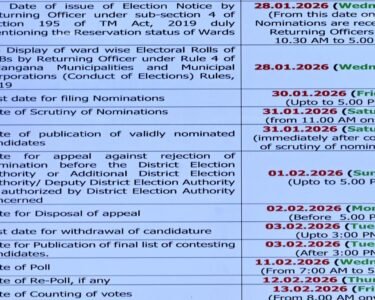Deputy Chief Minister and Panchayati Raj Minister Pawan Kalyan has made a major announcement: starting November 1, 2025, the government of Andhra Pradesh will establish Divisional Development Officer (DDO) offices across the state. The Times of India This initiative is being touted as a landmark step towards bolstering grassroots administration and ensuring that the benefits of governance reach the village-level more directly and efficiently.
Dismantling the Cluster System: Empowering Each Village
One key component of the reform is the abolition of the “cluster system” under which multiple village panchayats were grouped together under a common administrative unit. From the announcement, all 13,351 village panchayats in the state will now function as independent administrative units. Pawan Kalyan emphasised that with the cluster system gone, each village will have a seat-at-the-table in governance. The Times of India
By doing this, the government aims to reduce bureaucratic bottlenecks and ensure that decision-making, fund utilisation and public service delivery become quicker and more responsive to local needs.
Infrastructure & Funding Assurance
The minister affirmed that the government is committed to providing minimum infrastructure in every village, without being constrained by finances. He stated that the state will partner with both central and state mechanisms to mobilise funds for rural development and Panchayat empowerment. The Times of India
Moreover, the reform package includes the push to enable financial autonomy for panchayats — using the grant allocations under the 15th Finance Commission — so that local bodies are not just administrative units but become empowered institutions. The Times of India
Accountability & Implementation: A Call to Action
Pawan Kalyan underscored the operational urgency of the reforms, exhorting senior officials and staffers to take personal ownership of implementation. He reminded the bureaucrats that “it is the duty of every employee to ensure their benefits reach the people.” The Times of India
Furthermore, regular reviews of fund utilisation and transparent planning were emphasised. The minister also directed officials to make planning people-centric and to ensure no rural citizen is left behind as the system transforms.
The Impetus: Why This Matters
This sweeping reform comes at a time when rural governance and Panchayat functioning are under increased scrutiny. By decoupling villages from a cluster system and placing them as independent units of administration, the reform aims to speed up service delivery, avoid delays in funding, and create a more direct link between the government and the grassroots. With nearly 13,351 panchayats in the state, the scale is massive and shows the ambition behind the policy. The Times of India
From road maintenance to water supply, and from sanitation to health and education services, the expectation is that local bodies will now have both the authority and the means to act more effectively.
Potential Benefits and Challenges Ahead
Benefits
- Greater responsiveness: With DDO offices closer to to each community, decision-making is expected to be faster.
- Local empowerment: Village panchayats having independent administrative status means local leadership can chart development paths suited to their specific needs.
- Transparency and accountability: With regular reviews and an emphasis on fund utilisation, there’s a stronger mechanism to track how money flows and how results are achieved.
- Infrastructure expansion: The promise of minimum infrastructure in each village means greater equity in development.
Challenges
- Capacity building: With so many panchayats becoming independent units, the ability of local officials and elected members to manage new responsibilities will need building and training.
- Monitoring implementation: Ensuring that DDO offices truly translate into better ground-level outcomes will require strong monitoring.
- Coordination across levels: Although panchayats gain independence, integration with state-level schemes and central schemes still has to function smoothly.
- Ensuring financial prudence: Autonomy must be matched with fiscal discipline; otherwise, the risk of under-utilisation or mis-utilisation of funds increases.
Looking Ahead: The Road to November 1
With the November 1 deadline set, the coming weeks will be critical. Officials must ready the infrastructure, staff the DDO offices, align processes with the newly empowered village units, and communicate the changes to citizens so they understand how to access services. Pawan Kalyan’s insistence on visible outcomes suggests that the government expects quick results.
Conclusion
The announcement by Pawan Kalyan to open DDO offices across the state from November 1 marks a bold step in decentralising governance in Andhra Pradesh. If implemented well, this reform can transform how rural administration works — bringing decision-making closer to the people, increasing accountability, and accelerating delivery of services. The success of this reform will rest on how effectively the independent village units use the autonomy, how well the DDO offices are staffed and funded, and how quickly visible benefits reach ordinary citizens. The coming months will reveal whether this promise translates into a new era of grassroots governance. The Times of India







